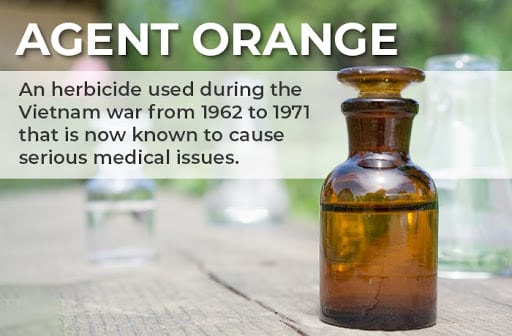Agent Orange & Kidney Disease: What Vietnam Veterans Should Know
Veterans who served in the Vietnam War are likely aware of the health effects of Agent Orange. Agent Orange Exposure has been connected to a number of conditions. However, the United States Department of Veterans Affairs hasn’t formally recognized all of these diseases.
Chronic kidney disease is an example of a condition that is likely linked to Agent Orange herbicide exposure, yet veterans may not be automatically entitled to service connection for it. This can require more work on the veteran’s part, but the extra effort can often earn the veteran the appropriate benefits. This guide will break down how to obtain service connection for kidney disease based on Agent Orange exposure.

Agent Orange Presumptive Conditions
Agent Orange contained dioxin, a contaminant that causes serious and often chronic health conditions. Former military service members who meet specific eligibility requirements are eligible for Agent Orange disability benefits.
The VA also recognizes certain conditions as being connected to Agent Orange exposure. As of 2020, the conditions include:
- Chronic B-Cell Leukemia
- Hodgkin’s disease
- Multiple Myeloma
- Non-Hodgkin’s lymphoma
- Prostate cancer
- Respiratory Cancers
- Soft tissue sarcomas
- Ischemic heart disease
- Chloracne
- Porphyria cutanea tarda
- Parkinson’s disease
- Peripheral neuropathy
- Type 2 Diabetes Mellitus
- AL Amyloidosis
Unfortunately, this list doesn’t necessarily include every disease that Agent Orange may cause. If a veteran has a condition that they believe is connected to Agent Orange, but the condition isn’t on the above list, they may still qualify for VA benefits. This may occur through a claim for secondary service connection or for primary service connection with sufficient evidence.
Agent Orange & Kidney Disease
Even though kidney disease and renal failure aren’t on the VA’s list of Agent Orange presumptive conditions, there is evidence that herbicides like Agent Orange can harm kidney function. In fact, a study at a VA Medical Center in Shreveport, LA found a potential link between Agent Orange and kidney cancer. Medical records that show this type of link can be critical in your appeal for VA disability benefits. It’s also important to note that some veterans will experience kidney disease secondary to diabetes.
While the VA may deny an initial claim for disability benefits for kidney disease caused by agent orange exposure, they will still consider medical evidence in an appeal. To do so, it’s important to find a health care provider who will provide a diagnosis for renal disease and consider all potential environmental exposures when doing so. They will use this information to form a medical nexus in support of your claim.
Keep in mind that while it is possible to prove service connection for Agent Orange and kidney disease, you will likely need to fight your case all the way to the Board of Veterans Appeals. It can be difficult to win this type of veteran benefits case at the Regional Office, so you will likely need to continue fighting. Obtaining sufficient medical evidence, including a clear medical nexus from a doctor, will be key in supporting your disability claim.
Kidney failure, kidney cancer, and other types of kidney disease can lead to serious health problems and require dialysis. While proving that your kidney disease is an Agent Orange-related condition can be challenging, the fight is worth the resulting VA benefits.
Have Questions About Your Agent Orange Disability Claim?
If you’re experiencing kidney dysfunction, and you believe that your health problems are linked to Agent Orange exposure, the VA may still deny your claim. Fortunately, the team at Hill & Ponton can help. Contact us today for a free case evaluation.
Visit our page on other Agent Orange diseases!




